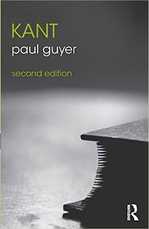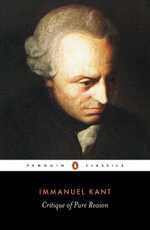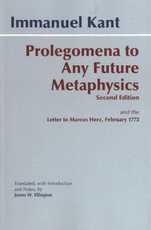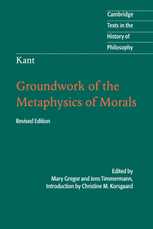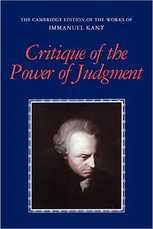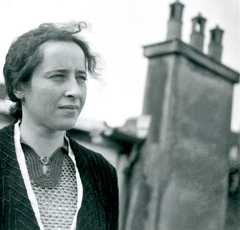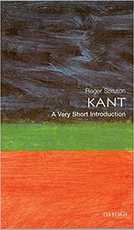

Immanuel Kant The Best 6 Books to Read
Immanuel Kant is considered by some to be the greatest ever philosopher in the history of Western philosophy — or at least certainly since the ancient Greeks Socrates, Plato, and Aristotle.
This is due to the hugely significant contributions the German philosopher — born in 1724 in Königsberg (then part of Prussia) — made to to virtually every area of philosophy, including epistemology, metaphysics, ethics, politics, and aesthetics.
Kant is perhaps best known for his synthesis of early modern rationalism (think Descartes’s cogito ergo sum) and empiricism (think John Locke’s tablua rasa) with his theory of transcendental idealism. If you’re interested in learning more about this, you might like our explainer of Kant’s transcendental idealism here.
Kant also made crucial contributions to moral philosophy, perhaps most famously his categorical imperative, which is commonly formulated as follows:
Act only according to that maxim whereby you can at the same time will that it should become a universal law.
This reading list consists of the best books on and by Immanuel Kant. After reading it, you’ll understand exactly why Kant is celebrated as one of the most incredible minds to ever enter philosophy.
(Note: Kant has a reputation for being a rather dense and challenging writer, so it’s recommended you pick up an introduction or two to supplement any reading of his primary works.)
Let’s dive in!
1. Kant: A Very Short Introduction, by Roger Scruton
Published in 1981, Roger Scruton’s Kant: A Very Short Introduction is a fantastic place to start for anyone with a budding interest in Immanuel Kant’s philosophy.
Considering the sheer breadth and depth of Kant’s thinking, Scruton does an admirable job in providing an illuminating overview of his most important ideas.
Scruton also provides helpful background to contextualize Kant’s work, and makes clear why his influence continues to be so enduring. Coming in at an accessible 160 pages, this is a very nice entry point to Kant.
2. Kant, by Paul Guyer
If you’re seeking to dive a little deeper with your Kant scholarship, look no further than Paul Guyer’s Kant, first published in 2006.
Guyer carefully explains Kant’s arguments about the nature of space, time, and experience, and also examines his moral philosophy. However, as well as introducing Kant’s ideas, Guyer also provides his own thoughtful analysis, critique, and commentary.
With its 521 pages packed full of insight, this book is a brilliant accompaniment for those seeking a deeper understanding of Kant’s thought.
In one concise email each Sunday, I break down a famous idea from philosophy. You get the distillation straight to your inbox:
💭 One short philosophical email each Sunday. Unsubscribe any time.
3. Critique of Pure Reason, by Immanuel Kant
Turning from introductions to primary texts, where better to start than with the text that cemented Kant’s name into the history of philosophy?
Kant’s 1781 Critique of Pure Reason investigates the limits of what we can know, and introduces his genius, controversial theory of transcendental idealism, a synthesis of rationalism and empiricism that continues to occupy scholars to this day.
This landmark book argues that reason precedes and makes possible our experience of the world, and lays the groundwork for much of Kant’s thinking. A difficult but staggeringly influential and profound work, Kant’s Critique of Pure Reason is essential reading for any serious student of philosophy.
4. Prolegomena to Any Future Metaphysics, by Immanuel Kant
Kant wrote his 1783 Prolegomena to Any Future Metaphysics after being disappointed with the reception of his masterwork, Critique of Pure Reason, which he blamed (not incorrectly) on the fact that no one really understood it.
In the Prolegomena, therefore, Kant attempts to distill the Critique’s core themes into a more readable form (more readable but still very much Kant, of course).
If you’re seeking a slightly more concise version of the themes covered in the Critique, you’ll find value in Prolegomena to Any Future Metaphysics.
5. Groundwork of the Metaphysics of Morals, by Immanuel Kant
Kant lays out his monumentally influential ethical vision in the 1785 Groundwork of the Metaphysics of Morals.
In this groundbreaking work, Kant argues that human beings are ends in themselves, never to be used by anyone merely as a means, and that morality is rooted in and justified by reason.
Kant’s deontological or ‘duty-based’ ethical system is still defended by many thinkers today, and while the 1788 Critique of Practical Reason is Kant’s longer work on ethics, his Groundwork of the Metaphysics of Morals is the more accessible (yet still rather forbidding!). If you’re interested in Kant’s ethics, this brilliant, challenging book belongs on your bookshelf.
6. Critique of the Power of Judgment, by Immanuel Kant
The third and final of Kant’s Critiques builds on arguments and systems from his earlier works to consider beauty, the sublime, and telelogy.
A work of deep, fascinating insight on art and science, and of great ambition, Critique of the Power of Judgment continues to make its influence felt in many areas of modern philosophy. No collection on Kant is complete without it.
Further reading
Are there any other books you think should be on this list? Let us know via email or drop us a message on Twitter or Instagram.
In the meantime, why not explore more of our reading lists on the best philosophy books:

View All Reading Lists
Essential Philosophy Books by Subject
About the Author

Get one mind-opening philosophical idea distilled to your inbox every Sunday (free)

From the Buddha to Nietzsche: join 14,000+ subscribers enjoying a nugget of profundity from the great philosophers every Sunday:
★★★★★ (50+ reviews for Philosophy Break). Unsubscribe any time.

Latest Breaks
Each philosophy break takes only a few minutes to read, and is crafted to expand your mind and spark your curiosity.
